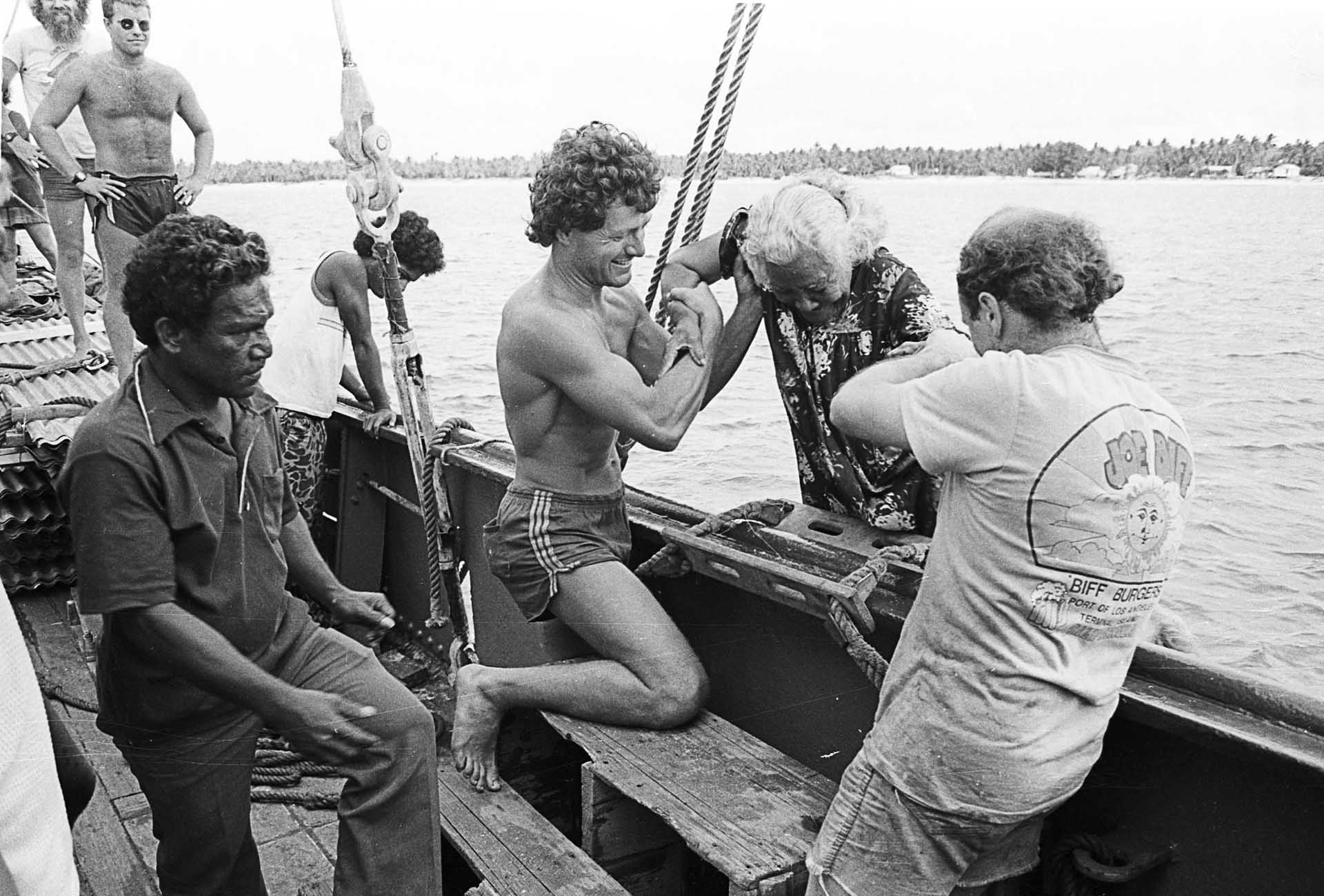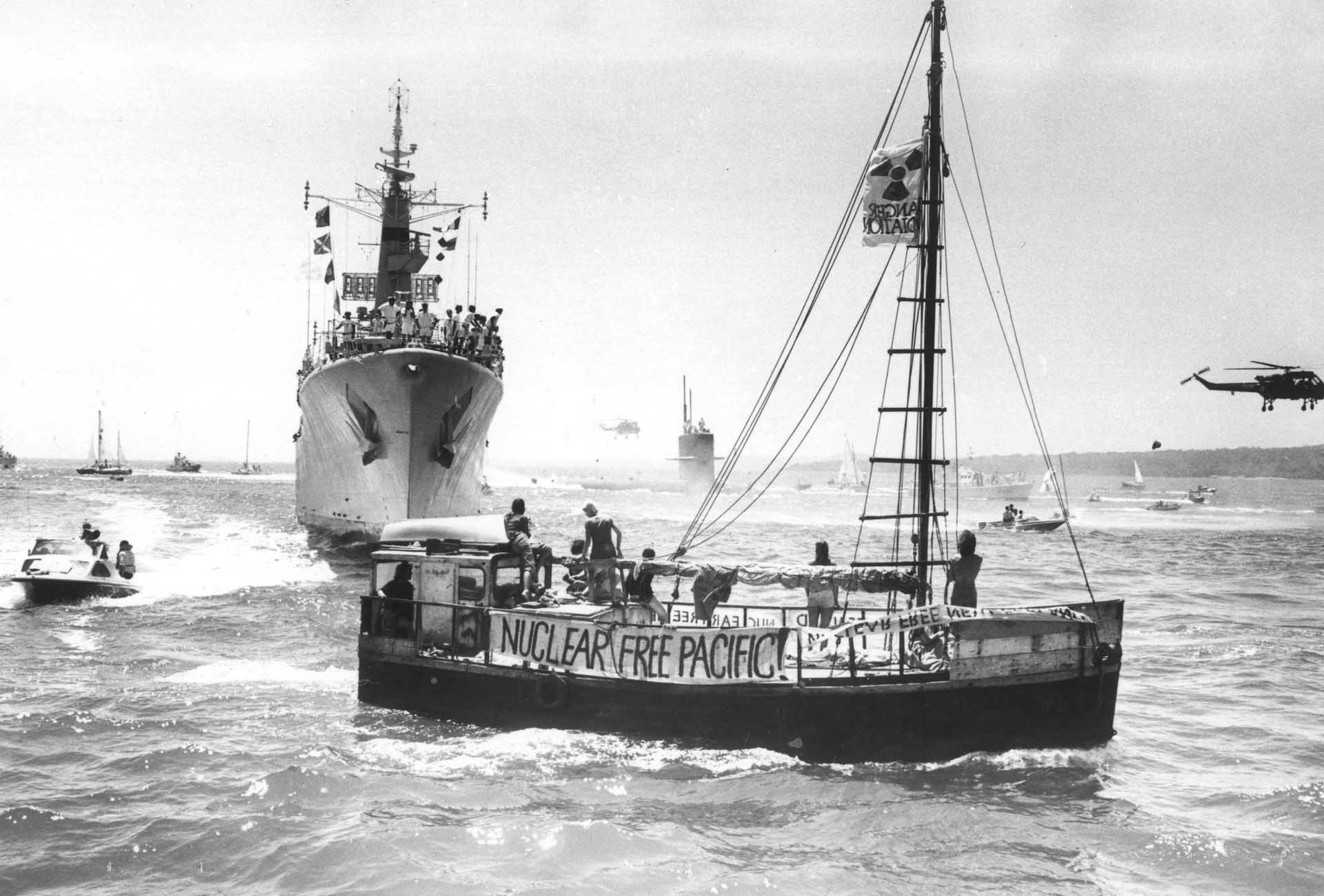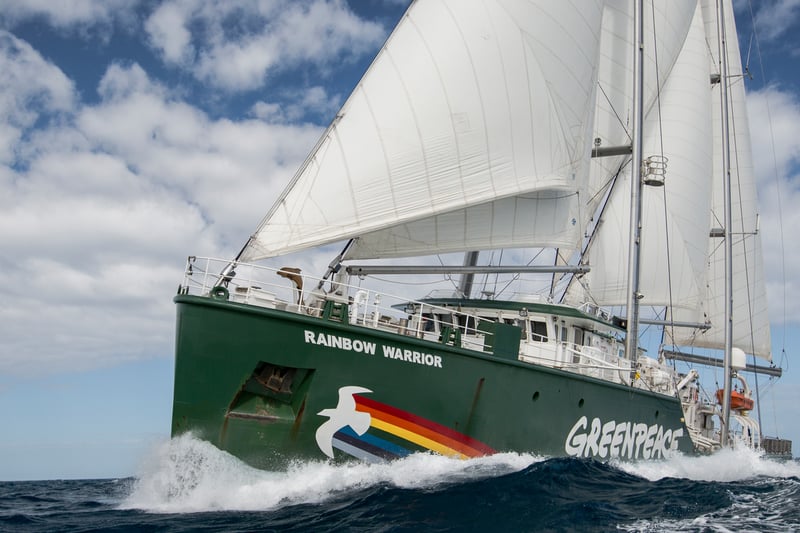
Thirty-eight years ago, a shocking act of violence shook the world and captured global attention: the bombing of the iconic Greenpeace ship, Rainbow Warrior. In response to a peaceful protest, a foreign government resorted to deadly force. It was an attempt to silence and undermine the people-powered movement successfully protesting nuclear testing in the Pacific. Despite this, the campaign eventually succeeded, and peaceful protest has prevailed in the decades since.
The bombing of the Rainbow Warrior
In the early hours of 10 July 1985, the Rainbow Warrior was moored in Auckland, preparing to protest against a planned French nuclear test in the Mururoa Atoll. Most of the crew were fast asleep. The Portuguese-Dutch photographer, Fernando Pereira, was among the few night owls still awake and engaged in lively conversations around the mess room table.
Suddenly, the lights went out. Followed by a loud crash as glass shattered into pieces. Then, a sudden roar of water as a second explosion shook the boat. Panic ensued as those on deck scrambled up the ladder or jumped to safety on the wharf.
Tragically, Fernando Pereira lost his life in the attack. He had joined the Rainbow Warrior crew to document and expose the French nuclear testing to the world. He got caught in the torrent of water caused by the bombs and drowned. He had celebrated his 35th birthday just days before the incident.

Investigating a murder: Uncovering the attack on the ship
It soon became evident that this act of violence was deliberate sabotage. The Navy diving team discovered the blasts originated outside the ship’s hull. This shocking revelation led to an investigation to uncover the truth.
Suspicion quickly fell on the French intelligence agency DGSE, which was revealed to have orchestrated the attack. French agents had posed as environmental activists to infiltrate Greenpeace and plant the explosives. Their motive? To “neutralise” the Rainbow Warrior before its planned peaceful anti-nuclear protest. It was a cowardly act.
This revelation of state-sponsored terrorism shocked the world and sparked public outrage and condemnation. The loss of innocent life and the violation of a peaceful protest struck a chord globally.
Despite this horrific event and the untimely death of Pereira, the movement to halt French nuclear testing in the Pacific eventually triumphed, and his legacy lives on. The Rainbow Warrior became a global symbol of hope, resilience and unwavering commitment to environmental justice.
The damage sustained by the original Rainbow Warrior could not be repaired. A new vessel bearing the same name was launched in 1989 and successfully sailed in Greenpeace campaigns for 22 years. In 2011, that ship was replaced by a third iteration of the Rainbow Warrior, ready to carry on the spirit of its predecessors.
Greenpeace ships as a catalyst for change
Ships have always been at the heart of Greenpeace’s campaigns. The original Rainbow Warrior was launched in 1955 as a trawler named Sir William Hardy. In 1977, Greenpeace purchased the ship and transformed it into the icon of activism as we know it today.
The name Rainbow Warrior was inspired by a Native American prophecy that spoke of a time when humanity would unite to protect the Earth’s treasures: “When the world is sick and dying, the people will rise up like Warriors of the Rainbow…”
Since then, Greenpeace has expanded its fleet to include the ice-breaking Arctic Sunrise, and the newest and greenest vessel Witness. Each ship plays a crucial role in environmental protection. The Greenpeace ships have been part of campaigns to tackle whaling, seal hunting, oil drilling, illegal fishing, nuclear testing, nuclear waste dumping and the climate crisis, to name a few. Their crews have faced hostile environments, storms, and the constant threat of arrest or sabotage. Yet, they persistently take action for our planet – conducting research, bearing witness, and confronting reckless, polluting corporations.
The most famous of these ships is the Rainbow Warrior, which serves as a floating symbol of hope, demonstrating the power of grassroots activism and peaceful protest. Synonymous with breaking boundaries and fearless campaigning, the current Rainbow Warrior has been patrolling the world’s oceans since 2011. Its distinctive appearance, adorned with rainbows and messages of peace, acts as a beacon of change and inspiration for countless individuals and communities worldwide.
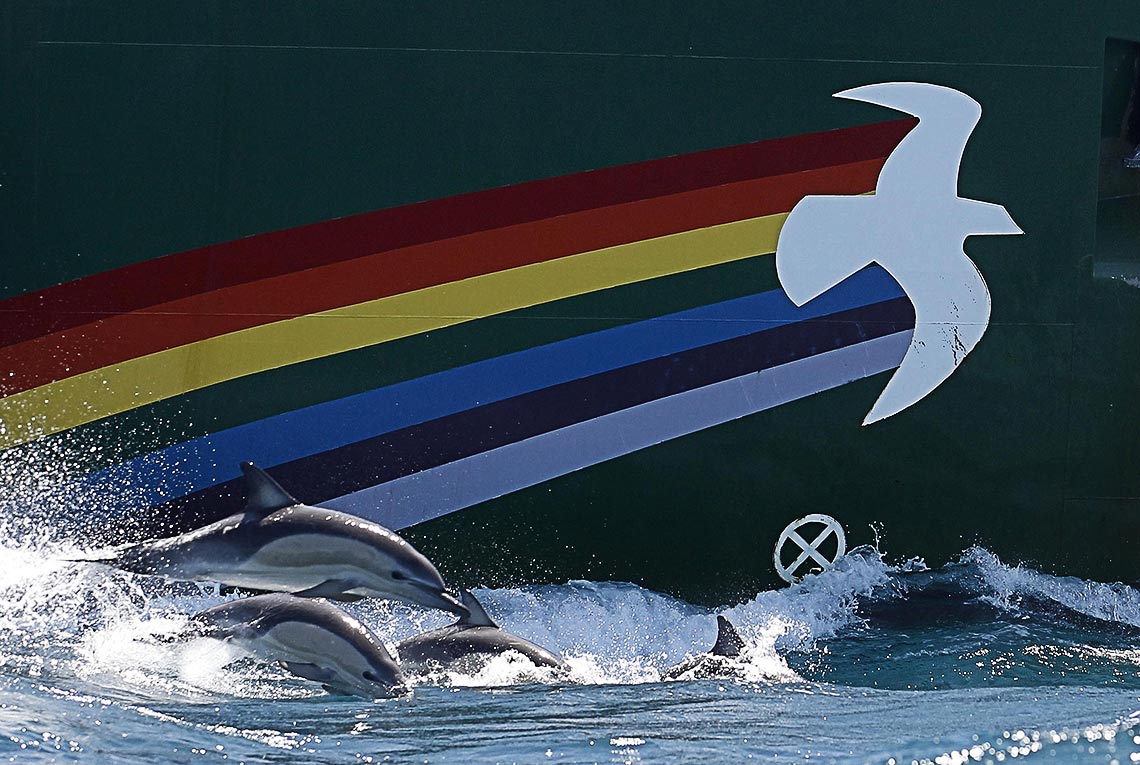
Right now, the Rainbow Warrior has just left the west coast of Australia, researching the region’s incredible biodiversity and taking on Woodside, a corporation involved in gas exploration and seismic blasting in this fragile area.
Innovation and sustainability
In addition to its environmental advocacy, the Rainbow Warrior embodies sustainability and innovation. The current Rainbow Warrior is one of the world’s most eco-friendly vessels, built from mostly sustainable materials, with huge sails, and a super-efficient diesel engine for when the wind isn’t doing it. The ship is a testament to the belief that sustainable solutions can be incorporated into our lives.
Maintaining and building these Greenpeace ships demands significant effort and resources. They require various radio technologies, lab equipment, wetsuits, mini-submarines, diving gear, and everything essential for the crew, including captains, mates, marine engineers, doctors, cooks, and dedicated volunteers.
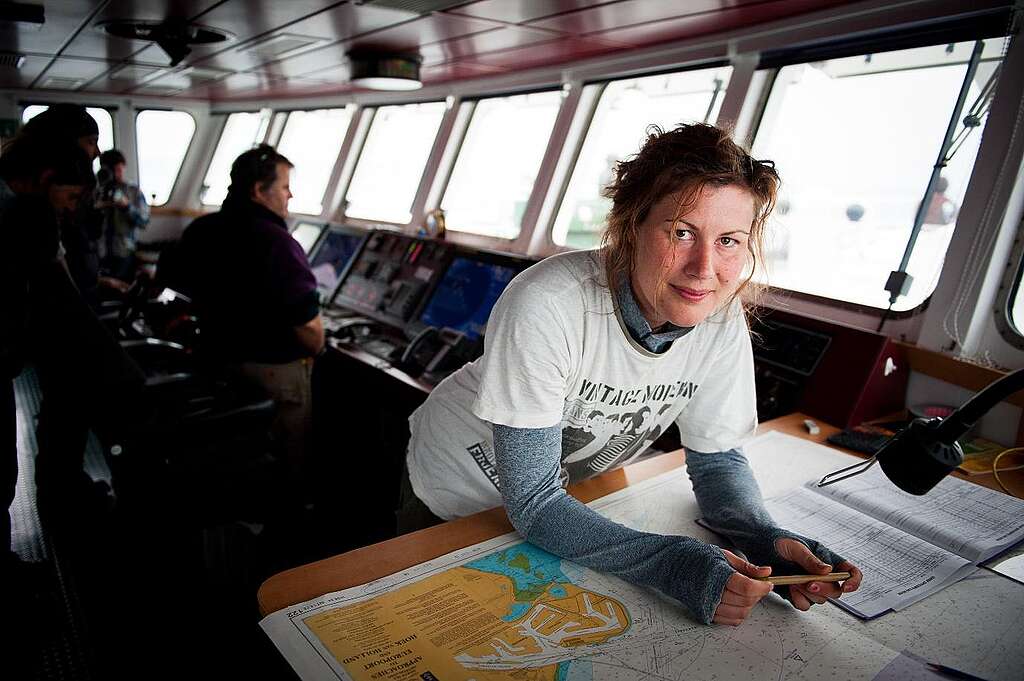
The generosity of individuals who believe in a greener and more peaceful future fund these ships and their campaigns. They play a pivotal role in shaping a future where our planet remains habitable.
Keeping ships at the forefront of Greenpeace’s global campaigns
Since its inception, the Rainbow Warrior has become an enduring symbol of environmental activism and the fight for a more green and peaceful future. Its crews have fearlessly navigated treacherous waters, raising awareness about critical environmental issues and advocating positive change.
Through its campaigns and peaceful protests, the Rainbow Warrior has inspired countless individuals to take action and join the global movement for a greener, more equitable planet. As we sail into the future, let us remember the unbreakable spirit of the Rainbow Warrior and continue the pursuit of a better world for all.
This is only possible with the support of amazing people like you! Can you contribute today to ensure that Greenpeace ships remain active at sea, fighting for a green and peaceful future?

Greenpeace Aotearoa has always been – and will always be – an independent organisation. That means we don’t take any donations from governments or corporations – so we can always put the planet’s interests first.
Take Action

